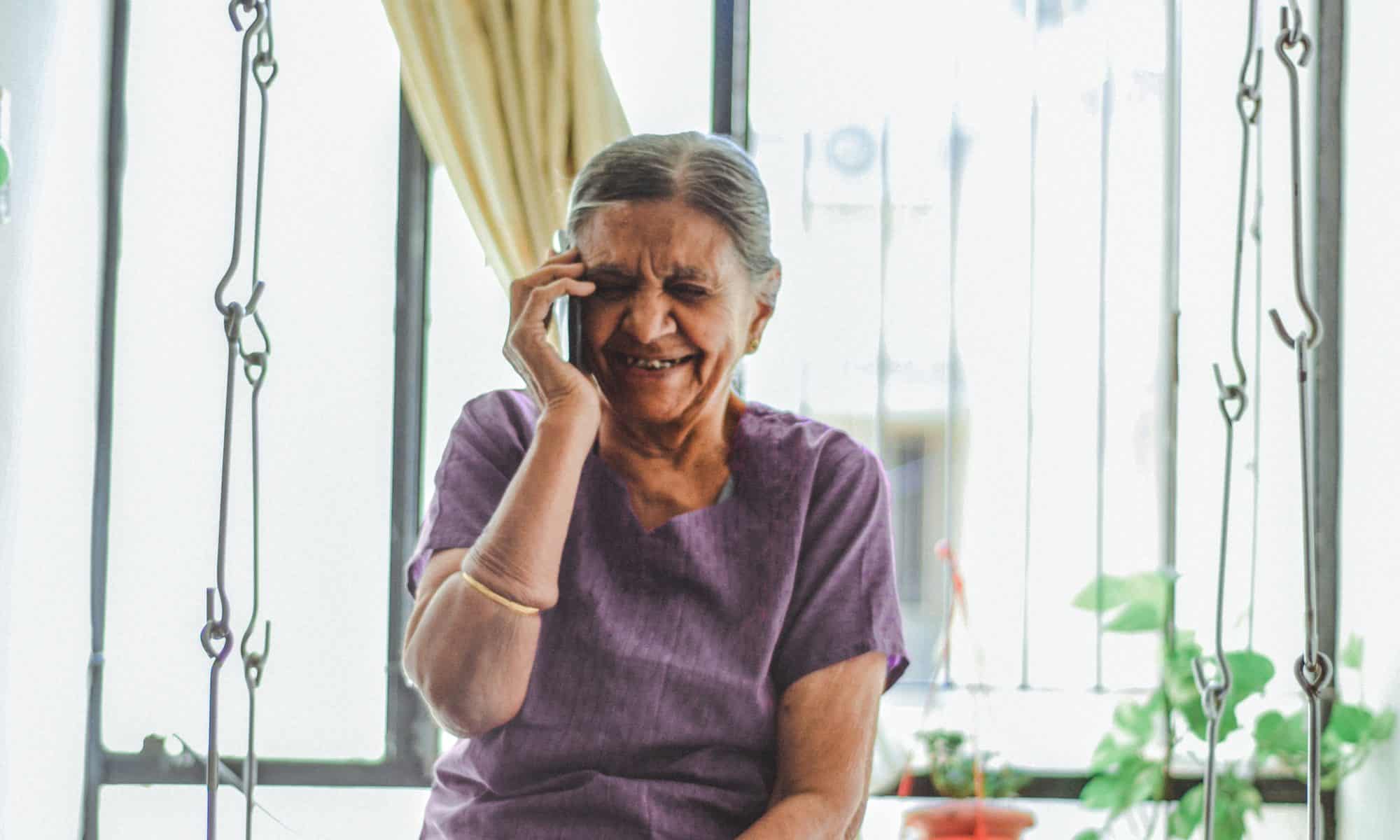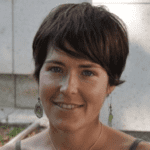In Slovenia, health promotion centers – embedded within all primary care centers – are the main providers of preventive and health-promotion services, including mental health services. Soon after the pandemic reached the country, helpline operators highlighted the need for counseling for the population. The national institute of public health explains the changes to the services, and how they will change ways of working in the future.
Written by Matej Vinko, Saška Roškar, Tatjana Novak Šubara and Alenka Tančič Grum from NIJZ, the Slovenian National Institute of Public Health.
Slovenia was one of the last countries in Europe to report a COVID-19 case, on 4 March 2020 1 . A week later, on 12 March, it was declared to be an epidemic2. Among a series of measures introduced to contain and mitigate the spread of the disease, the government published a decree on 20 March that halted the provision of all non-urgent and preventive health services3.
In Slovenia in 2002, health promotion centers (HPCs) were established within all 61 primary health care centers (PHCs) across the country. They are now the main providers of preventive and health-promotion services, including mental health services4. The decree of 20 March brought the provision of these services to an abrupt stop, creating a gap in responding to population mental health needs.
This article showcases how HPCs’ mental health services were adapted to continue to respond to population mental health needs during the epidemic. It also provides details on the reach of the adapted services, and key characteristics of their users, as well as lessons learned.
Identifying the problem and finding a solution
Shortly after the start of the COVID-19 epidemic in Slovenia, a national helpline for information and advice on the disease was set up5 . Very quickly, helpline operators flagged the need to provide specific counseling to people experiencing psychological symptoms (eg fear, discomfort or distress) related to the epidemic.
Given their well-established network across the country, and the fact that mental health professionals are an integral part of their workforce6, the National Institute of Public Health (NIJZ) identified HPCs as an appropriate and accessible option to deliver psychological support to their community. members, through a crisis telephone hotline.
We asked all HPCs about their interest and received a prompt positive response from 56 out of 61 centers. 12 other mental health services (i.e. specialist services such as psychiatry and clinical psychology) within PHCs also joined the initiative.
Putting the solution into action
Within the first week of the epidemic, NIJZ asked all HPCs to provide phone numbers and working hours for their helplines. A list was created and promoted through different media (websites, national and local broadcasting services, etc.). After the approval of the Ministry of Health, a network of HPC helplines was officially activated.
NIJZ provided rapid support to counselors and HPCs. In collaboration with psychologists at the Administration of the Republic of Slovenia for Civil Protection and Disaster Relief (ACPDR), we organized an educational webinar for mental health professionals covering topics ranging from basic principles of crisis (helpline) interventions to specific topics that counselors may encounter (eg domestic violence, suicidal behavior). NIJZ also developed a package of guidelines addressing different crisis situations, which contained (i) basic guidelines for telephone counseling, (ii) a Q & A document (encompassing the most frequent questions / answers encountered during the webinar), (iii) guidelines on interventions in the case of domestic violence (iv) guidelines on suicidal behavior, (v) general information about COVID-19, and (vi) a comprehensive list of helpful resources in different regions in Slovenia. These documents were shared among all participating HPCs. Additional support for all counselors was organized in the form of weekly online supervisions. The supervisors were experienced psychiatrists and psychologists who provided their services pro bono.
Understanding callers and their needs
The first HPC helplines opened on 16 March. During each conversation, counselors assessed the callers’ sociodemographic characteristics, exposure to COVID-19 (ie, being a front-line worker; being in contact with someone infected with the coronavirus, having caught the infection with the coronavirus or being hospitalized because of COVID -19 etc.), history of mental illness, and use of psychopharmaceuticals. They recorded these observations in an online questionnaire, making a note of their referrals to other sources of help (eg, psychiatric or psychological treatment, GP or NGO).
In total, 70 counselors across 43 HPCs reported 1,491 telephone calls between 16 March – 24 May 2020. Most callers were women (75.7%), 60.5% of callers were aged between 30 and 64 years, 44.9% were employed and 23.6% of them were retired. Over a third of calls (37.3%) were made by callers with a social or medical vulnerability (eg, due to older age, pregnancy, pre-existing health condition, disability, substance abuse) or their relatives. Only 6.6 % of the callers were identified as possible COVID-19 patients, or as close contacts of patients. Almost a third (31.3%) of callers reported having a pre-existing mental illness and 65.3% of them were taking antidepressants and / or benzodiazepines.
As indicated in Figure 1, after an initial rapid increase in phone calls until the third week of epidemic, the calls then gradually decreased. Results showed that 67.4% of calls were associated with the psychological impact of the epidemic. The prevailing reasons for calling were emotional and behavioral distress symptoms (eg anxiety, fear of contagion, insomnia, fear of the future – reported by 26.3% of callers), difficulties in managing pre-existing mental illness or health conditions (19.7%), information on self-help strategies for stress relief, relaxation, physical activity, time-management, as well as seeking further information on accessibility of financial or social support (12.1%). In 6 – 10% of cases, callers reported interpersonal difficulties (including family violence) or coronavirus-related stigma, loneliness, job- and home schooling- related problems as well as issues referring to work-family balance and caring for vulnerable relatives or friends. 1% of calls were suicide-related.
Most often, callers (40.1%) were notified about the helpline or even referred to the helpline by health care workers in their local PHC or HPC. 21.8% of callers were informed about the helpline on the internet, radio, or television.
Figure 1. Important milestones in the COVID epidemic in Slovenia and number of calls received during respective weeks of telephone counseling service. Legend: 1 – Declaration of epidemic in Slovenia, emergence of the Government coronavirus call center (12/3/2020). 2- Prohibition of movement outside the municipality of residence and of public gathering in public places (30/3/2020). 3 – Beginning of gradual easing of lockdown measures (18/4/2020). 4 – Reestablishment of free movement outside municipalities of residence (30/4/2020).
Lessons learned and looking ahead
The COVID-19 epidemic caught the world by surprise. At the beginning of the outbreak, most of the attention was directed at mitigating the clinical burden of SARS-Cov-2. However, it soon became apparent that the epidemic would have further reaching consequences. As time progressed, economic, social, psychological, and cultural impacts came to the forefront. Population mental health has been affected by distressing media reports, a collapsing healthcare system in certain areas of neighboring Italy, and the Slovenian government’s measures to contain the spread of the virus. This is particularly relevant for groups in vulnerable circumstances, such as relatives of patients with a chronic illness, families and individuals with low-incomes, and individuals with pre-existing mental illness.
Fortunately, in Slovenia the established PHC infrastructure enabled a timely response that served population needs identified at the very start of the epidemic. On 9 May, the decree halting the provision of all non-urgent and preventive health services was ended, and after eight weeks of providing psychological support, HPCs helplines reduced their working hours in order to start up their regular preventive interventions again, and as the number of daily calls was declining7. The COVID-19 helplines remain active, however, and are likely to become integrated within regular HPC activities.
Looking back at the eight weeks, we believe that the helplines contributed to mitigating the unequal psychosocial impact of the epidemic within different population subgroups. A large share of callers were local residents referred to the helpline by local health care workers who are able to identify individuals in vulnerable circumstances. The fact that the service was used at a community level is an indicator that people trust information and support provided by known professionals in familiar settings (ie, local HPCs). On the other hand, small highly-connected communities in which everybody knows each other offer little space for privacy, which can add to the feeling of being stigmatized.
On the less positive side, the sub-optimal accessibility of the helplines was a definite drawback. HPC working hours depended on the availability of the trained workforce, meaning that not all helplines were able to offer support throughout the day or throughout the whole week. To address this, on 6 April the Slovenian Psychologists’ Association and NIJZ established an additional national helpline, which provided support during the late afternoon and evening (until midnight). Psychologists, clinical psychologists and psychotherapists were engaged as volunteers. The coordination of one national and 52 local helplines, and the abundance of contact numbers, made it difficult to promote them on a national level. A better recognition and therefore enhanced utilization of the helplines remains a challenge to overcome.
Although this article focuses solely on the helplines, and their role in the epidemic’s impact on mental health, we are aware that they address a relatively small fraction of population mental health needs. A comprehensive public mental health response to the epidemic is needed to prevent an increase in the burden of mental illness. As we slowly “flatten the curve” we should keep in mind that the virus is not the only threat with a capacity to overwhelm our health care systems.
References
- World Health Organization. Novel Coronavirus (2019-nCoV) Situation Report – 45 [Internet]. World Health Organization; 2020. Available here .
- Measures to contain the spread of COVID-19 infections [Internet]. Portal GOV.SI. [cited 2020 May 27]. Available here .
- Odlok o začasnih ukrepih na področju zdravstvene dejavnosti zaradi zajezitve in obvladovanja epidemije COVID-19, stran 1883 [Internet]. Uradni list. [cited 2020 May 27]. Available here .
- Albreht T, Pribakovic Brinovec R, Josar D, Poldrugovac M, Kostnapfel T, Zaletel M, et al. Slovenia: Health System Review. Health Syst Transit. 2016 Jun; 18 (3): 1–207.
- The Government coronavirus call centre [Internet]. Portal GOV.SI. [cited 2020 May 29]. Available here.
- Aktivnosti in programi – Skupaj za zdravje [Internet]. [cited 2020 May 27]. Available here.
- Odlok o prenehanju veljavnosti Odloka o začasnih ukrepih na področju zdravstvene dejavnosti zaradi zajezitve in obvladovanja epidemije COVID-19, stran 2431 [Internet]. Uradni list. [cited 2020 May 28]. Available here .





